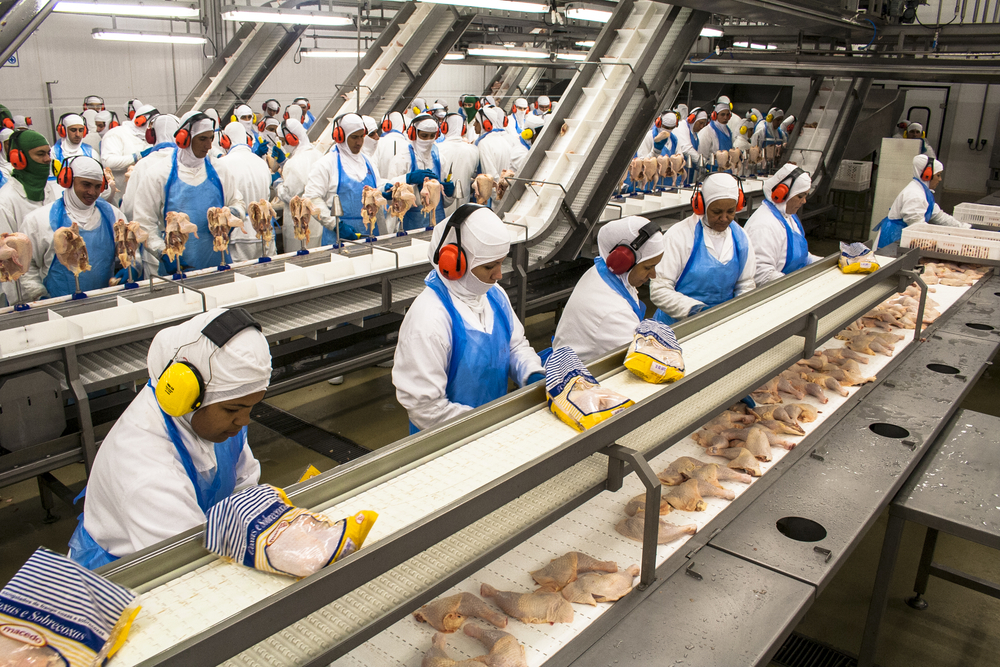Food packer jobs are an essential part of the food industry, ensuring that products are safely and efficiently packed for distribution and sale. These positions offer various opportunities, from entry-level roles to more specialized positions. If you're considering a career as a food packer, here's what you need to know about the job, including responsibilities, skills required, working conditions, and potential career growth.
Job Responsibilities
-
Packing Food Products: The primary duty of a food packer is to pack food items into containers, boxes, or crates. This involves ensuring that products are properly labeled and sealed to maintain freshness and prevent contamination.
-
Inspecting Products: Food packers must inspect food items for quality and ensure that they meet safety standards. This includes checking for damaged or expired products and reporting any issues to supervisors.
-
Operating Machinery: In some settings, food packers operate machinery such as conveyor belts, packing machines, and labeling machines. Proper training and adherence to safety protocols are crucial.
-
Maintaining Cleanliness: Keeping the packing area clean and sanitized is essential to prevent contamination. This involves regular cleaning of workspaces, tools, and equipment.
-
Following Safety Guidelines: Adhering to health and safety regulations is critical in food packing. This includes wearing protective gear, following proper handling procedures, and being aware of food safety standards.
-
Record Keeping: Some food packers are responsible for maintaining records of packed items, including quantities, batch numbers, and expiration dates. Accurate record-keeping ensures traceability and quality control.

Skills and Qualifications
-
Attention to Detail: Accuracy is crucial in food packing to ensure that products are correctly labeled, packaged, and meet quality standards.
-
Physical Stamina: The job often requires standing for long periods, lifting heavy items, and performing repetitive tasks. Good physical health and stamina are essential.
-
Manual Dexterity: Efficient and precise hand-eye coordination is necessary for tasks such as sealing packages and operating machinery.
-
Basic Math Skills: Basic arithmetic skills are helpful for counting products, measuring weights, and maintaining records.
-
Teamwork: Food packers often work as part of a team, so good communication and collaboration skills are important.
-
Safety Awareness: Understanding and following safety protocols to prevent accidents and contamination is vital.
Working Conditions
-
Environment: Food packers typically work in manufacturing plants, warehouses, or distribution centers. These environments can be noisy, cold (especially in refrigerated areas), and require adherence to strict hygiene standards.
-
Hours: Shifts can vary, including early mornings, late nights, and weekends. Overtime may be required during peak production times.
-
Pace: The work can be fast-paced, especially in large-scale production facilities. Meeting production quotas and deadlines is often a key part of the job.
Career Growth and Opportunities
-
Entry-Level Access: Food packer jobs are often entry-level positions that do not require extensive education or experience, making them accessible to a wide range of job seekers.
-
Training and Advancement: On-the-job training is typically provided, and there are opportunities for advancement. With experience, food packers can move into supervisory or quality control roles.
-
Specialization: Food packers can specialize in specific areas such as machine operation, quality inspection, or logistics, leading to more specialized and higher-paying roles.
-
Cross-Industry Opportunities: Skills acquired in food packing are transferable to other industries such as pharmaceuticals, cosmetics, and consumer goods, providing broader career opportunities.
Benefits and Challenges
Benefits:
- Job Availability: The food industry is essential and growing, providing a steady demand for food packers.
- Skill Development: Gain valuable skills in manufacturing, quality control, and logistics.
- Career Entry Point: Provides a starting point for those looking to enter the food industry or manufacturing sector.
Challenges:
- Physical Demands: The job can be physically taxing, requiring long hours of standing, lifting, and repetitive motions.
- Work Environment: Conditions can be challenging, including exposure to cold temperatures and noisy machinery.
- Monotony: Repetitive tasks can become monotonous over time.















